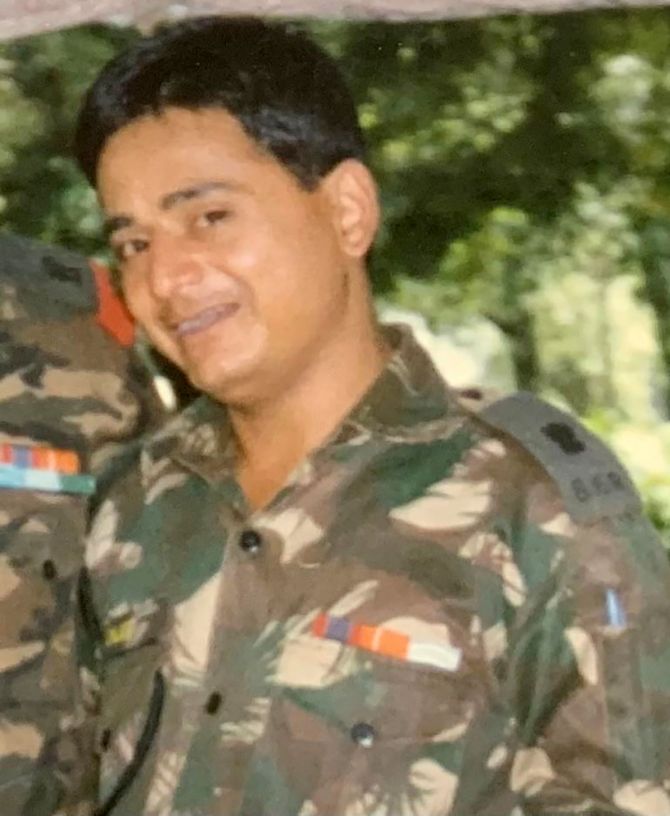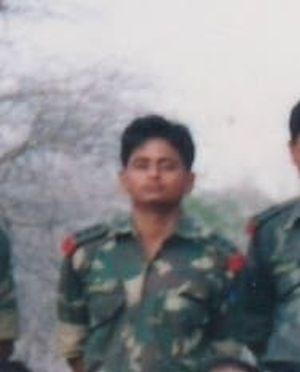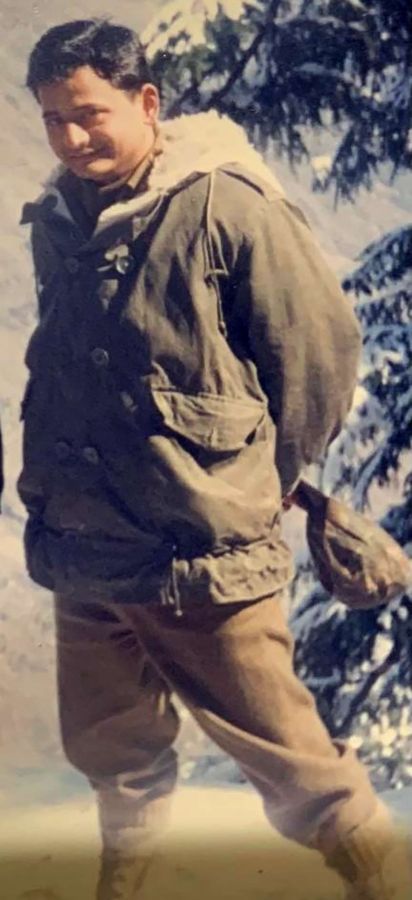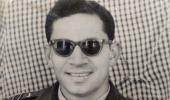It is 25 years since Captain Sanjit Bhattacharjee went missing during a patrol at the India-Pakistan border.
Pakistan has never acknowledged his captivity.

Mrs Kamla Bhattacharjee, 81, is the mother of an Indian Army captain who has not returned home in 25 years.
Neither has he been seen or heard.
Captain Sanjit Bhattacharjee and Lance Naik Ram Bahadur Thapa were captured by Pakistan during a patrol along the International Border in Gujarat on April 20, 1997.
Nothing is known about Captain Bhattacharjee and Lance Naik Thapa since.
Captain Sanjit's mother Mrs Bhattacharjee filed a plea in the Supreme Court asking the government to bring her son home.
In her plea, Mrs Bhattacharjee said that the family had information that her son was held in Kot Lakhpat jail in Lahore.
Last week, in response, the government stated that the external affairs ministry has consistently pursued Captain Sanjit's case with Pakistan over the years. However, the government of Pakistan has never acknowledged the captain's presence in their custody.
There are 83 Indian defence personnel in captivity in Pakistan.
A bright and enthusiastic young officer, Captain Sanjit Bhattacharjee belongs to the Gorkha Regiment. He served around five years in the unit before he went missing.
Senior officers remember him as a man who was raring to go, never said no to any task entrusted to him and had a bright future ahead.
Since his family lived in Pune, the Bengali officer spoke fluent Marathi, apart from Gorkhali, the language of the troops of the Gorkha Regiment.
On a scorching hot day in April when temperatures in the Rann of Kutch are record-breaking, Captain Bhattacharjee had set out with his platoon of 17 men. Their reconnaissance task was to inspect some border pillars along the International Border.
The International Border separates India and Pakistan in Gujarat and Rajasthan. It is guarded by the Indian Army and the Border Security Force.
The Rann is a flat desert; in summer it is one of the country's hottest regions.
Captain Bhattachrjee's patrol comprised men from his unit and few others from supporting units.
The patrolling party was dropped in a vehicle at a post from where they had to start walking for around 100-120 kilometres. The patrol would have taken them 3-4 days.
The men would have carried food, water in their backpacks.
According to plan, they were supposed to be picked up at a post X on the completion of the patrol.
But alarm bells were sounded when the platoon did not show up even a day after the scheduled day of return.
Communication could not be established with them because a decision had been taken not to carry the heavy radio set so that they could carry more water on them.
The unit quickly sent a search party. Colonel C R Deshpande (retired), who was a major at that time and company commander of the unit, remembers going with 10 men in two vehicles to look for the men.
They got off at the post where the patrol was scheduled to reach. From there they set off on foot with mini flares, binoculars and tracer bullets.
"In case, they were lost, they could see the flares and know which way they had to turn," says Colonel Deshpande, who recently retired after 33 years of distinguished service in the Indian Army.
They spent two days and a night in search of the lost men, but to no avail.
By that time, the news had reached the highest levels of the command headquarters.
A helicopter was launched to aid the search with the commanding officer and Major Deshpande on board. Their eyes scoured the landscape on what was a very hazy day.
Another two days of aerial survey went by with no results.
The rescue party was aware that without food and water, the men would be in a critical situation.
"Three-four days had passed. At sunset we spotted the patrol which was walking back from where they had started in the northwesterly direction. They could hardly walk and were dehydrated," Colonel Deshpande remembers 25 years later in a conversation with Archana Masih/Rediff.com.
The men had run out of water. Some were experiencing acute abdominal pain due to ingesting salt water and needed medical attention.
After the last person entered the chopper, it was discovered that Captain Bhattacharjee and Lance Naik were not with the patrol party.
"I asked them where Captain Sanjit is and the jawan told me that he was way behind them. He did not know where he was," says Colonel Deshpande who immediately got off the chopper with a couple of jawans to retrace the platoon's footsteps.

By then, high tide had set in and the waters had risen knee high. The Rann has two water channels that drain water into the sea.
The high tide had washed the footsteps of the patrol party in the white sand.
The men continued walking, searching with torches, mini flares and shouting out for the lost men. As darkness fell, they saw fishermen coming out to sea.
Home to a rich marine life, the waters bordering Kutch was used by both Indian and Pakistani fishermen.
The Indian fishermen had not seen the men. They then shouted out to their Pakistani counterparts and asked them if they had seen anyone.
"They then told us that the Pakistani fishermen informed them that they had picked our boys and taken them," says Colonel Deshpande who immediately reported the news to his seniors.
The Pakistani fishermen subsequently handed the Indian soldiers to the Pakistan army.

Apparently, it was later learnt that the patrol was 60-70 km short of their pickup point. A nala had to be crossed en route, but because of high tide what was 8-10 feet channel appeared like an open sea.
The men were very tired and some did not have the strength to swim across.
"I was told that Captain Sanjit swam across twice to show them they could do it, but could not convince the rest," says Colonel Deshpande.
"Hence the decision was taken to turn back."
Due to the absence of communication, the platoon could not convey to the unit that they had turned back.
The two soldiers were never found.
Of the 83 missing defence personnel in Pakistan, four are prisoners of war who went missing in 1965, and most are from the 1971 War.
A total of 21 defence personnel have gone missing from 1996 till 2010.
Pakistan has never acknowledged that it had captured Captain Sanjit Bhattacharjee and Lance Nail Ram Bahadur Thapa.
"The Indian Army and government has pursued his case at the highest level, but we never got him back," says Colonel Deshpande.
"It was a big shock to lose an officer and a jawan. It haunts us to this day, especially because it happened in peace, not war."
Feature Presentation: Aslam Hunani/Rediff.com










